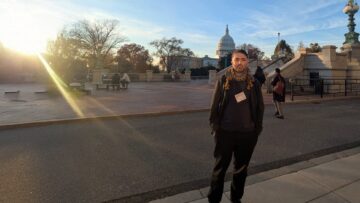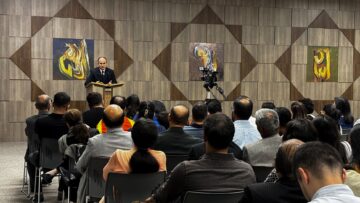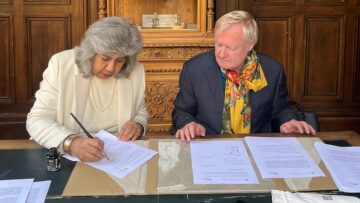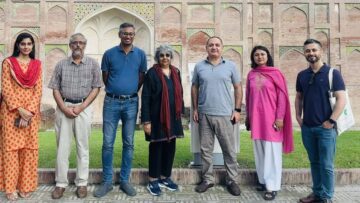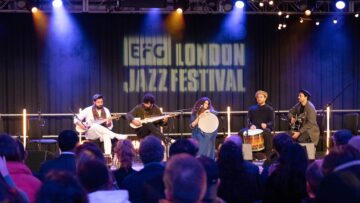From 12–16 August 2025, scholars from The Institute of Ismaili Studies (IIS) participated in the 10th Biennial Convention of the Association for the Study of Persianate Societies (ASPS), hosted at the Tashkent State University of Oriental Studies, Uzbekistan. The convention brought together leading academics from around the world to explore the history, literature, and intellectual traditions of Persianate societies.
IIS scholars contributed in multiple capacities, presenting research papers, organising and chairing panels, and delivering book talks. Their wide-ranging participation reflected the diversity and depth of the Institute’s scholarship.
Dr Alessandro Cancian presented a research paper on ‘Shiʿism, Sufism and Religious Identity through the Imaginal Lens’, analysing the works of Solṭān ʿAlī Shāh Gonābādī (d. 1909), particularly his Tanbīh al-nāʾimīn. His paper explored how Shiʿi Sufism emerged in nineteenth century Iran, with mystical concepts of the imaginal world (ʿālam-i mithāl) shaping debates on identity and boundaries within Islam.
Dr Dagikhudo Dagiev organised the panel The Central Asian IsmailisAdherents of a branch of Shi’i Islam that considers Ismail, the eldest son of the Shi’i Imam Jaʿfar al-Ṣādiq (d. 765), as his successor., also delivering a paper entitled ‘The Shughnānī Ismailis’ View of Shaykh Jalāl al-Dīn Rūmī through Semenov’s Lens’. He presented further research on ‘Persian Literature in Tajikistan and Iran in the Last Hundred Years’ and delivered a book talk on his new volume Identity, History and Transnationalism in Central Asia: The Mountain Communities of the Pamirs (2025).
Dr Maria De Cillis presented a research paper on ‘Affinities and Harmonic Relations in Ismailism: Ḥamīd al-Dīn al-Kirmānī and Nāṣir-i Khusraw,’ tracing how the idea of cosmic harmony (harmonia universalis) rooted in Greek, Stoic, and Neoplatonic traditions was adapted by classical Ismaili thinkers. She discussed how these principles of balance and correspondence informed Ismaili metaphysics and doctrine.
Dr William Hofmann presented a research paper on ‘Spiritual Markets of Song and Verse: Gift Exchange and Early Hindi Song in Persian Sufi Texts’. His study examined Persian Sufi works recounting performances of Hindi devotional songs, showing how these multilingual compositions circulated in samāʿ assemblies alongside Persian ghazals. He further analysed qawwal notebooks and multilingual compilations combining Persian, Hindavi, Gujarati gināns and Kabir’s sakhis to demonstrate the intercultural logic of devotional orature in South Asia.
Dr Karim Javan presented a research paper entitled ‘Kulloyat-i Athar-i Mirza Husayn b. Yaʿqub Shah: Poetic Narratives of Ismaili History in Early Modern Khurāsān’. His study showed how the collected works of Mīrzā Ḥusayn preserved aspects of Ismaili daʿwaLit. ‘summons’, ‘mission’ or invitation to Islam. Amongst Shi’i Muslims, it was the invitation to adopt the cause of the Imamat. It also refers more specifically to the hierarchy of…, community life, and memory in seventeenth-century Khurāsān, highlighting poetry as a vital historical record when prose sources were limited.
Dr Otambek Mastibekov presented a research paper on ‘The Impact of Political Transformations on Ismaili Communities in Central Asia’, examining how shifting regimes and socio-political upheavals reshaped communal life and religious practice across the region. In addition, he delivered a book talk on his forthcoming critical edition of Ādāb-Nāmah (A Book of Ethics), reflecting IIS’ commitment to making neglected works of ethical literature accessible to scholars and wider audiences.
Dr Daryoush Mohammad Poor presented a research paper entitled ‘Ismaili Cosmology: Nature and Religion’. He explored an Ismaili ḥadīthLit. ‘report’ or ‘narrative,’ used for the traditions of the Prophet Muhammad and in Shi‘i Islam also for those of the Imams. tradition that demonstrates the confluence of revelation and reason, highlighting how authors such as al-Muʾayyad fī al-Dīn al-Shīrāzī, Nāṣir-i Khusraw, and Naṣīr al-Dīn al-Ṭūsī articulated the compatibility of faith, philosophy, and science, principles that remain resonant today.
Dr Nourmamadcho Nourmamadchoev presented a research paper entitled ‘Why did the TimuridsA Muslim dynasty founded by Timur Lang (Tamerlane) which ruled Persia and Transoxiana (1370–1507 CE). Exterminate the Ruling Family of Badakhshan?’ He analysed the political, social, and religious consequences of Timurid violence in the fifteenth century, tracing campaigns, succession disputes, and conversions that reshaped the region’s religious landscape, including Ismaili communities.
Dr Aslisho Qurboniev organised and chaired the panel Translating, Appropriating, and Circulating Encyclopaedic Knowledge in the Persianate World, where he also presented a research paper on the Persian translations of the ‘Rasāʾil Ikhwān al-ṢafāʾFrom Arabic, lit. ‘Brethren of Purity’, a group of learned scholars who were based in Basra and Baghdad around the last quarter of the t10th century CE. It is more… (Epistles of the Brethren of Purity)’. His paper traced their reception from Nāṣir-i Khusraw through later traditions, demonstrating the enduring role of encyclopaedic texts in intellectual history.
Cover image from Dr Daryoush Mohammad Poor.





